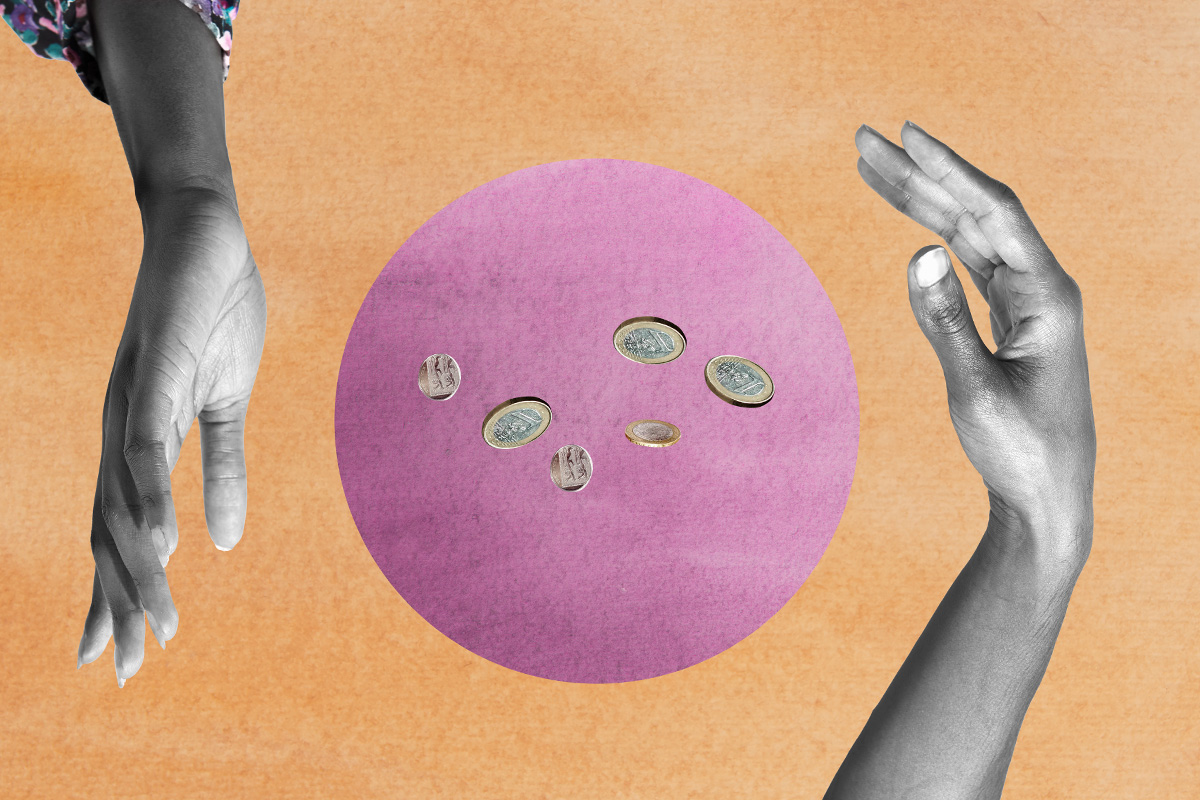It was the middle of the summer. My brother and I were in the backseat of my mother’s ’92 Toyota as she drove us to our elementary school. The thought of having the sprawling playground all to myself without the context of recess was exciting to me — I even imagined my kindergarten friends would be jealous. This was a small, tight-knit Jewish private school, an oasis in an overwhelmingly goyish Midwestern town.
My mother parked in the empty lot at the front of the building. We grabbed our gloves and gardening shovels and got to work at the planting beds all over the property. We were there to pull weeds because we couldn’t afford to pay full tuition.
I wasn’t textbook-definition “poor” growing up, but I thought I was for a long time; this was mostly due to the fact I grew up with kids from more stereotypical Jewish homes. I was raised by a single mother who worked as a secretary. My father was a bartender and mostly absent. At my school, this was practically unheard of. Teachers didn’t even know how to handle it. Once, my Hebrew instructor asked me in the middle of class if my father was “in the picture at all.” I was too ashamed to tell the truth, so I lied and said that he was.
I now consider myself working class. My mother’s income was definitely in line with that, but I had plenty of middle-class experiences growing up — private school, for one. Music lessons, braces, financial support through college: These are some of the myriad ways in which I am privileged. However, growing up, those things were harder for me to appreciate. What I did notice was how my best friends went to Florida every summer and on ski trips every winter. They received expensive electronics for Hanukkah, whereas I got socks or magazines. I harbored intense jealousy and was embarrassed of my background. One day, I was standing in the lunch line with a boy and he asked if my family owned a telephone. My friends noticed the differences in our lives; how could they not?
While I did love my school, I always felt a little out of place. It felt like I was always trying a little too hard to fit in. The older I got, the stronger this feeling became. It wasn’t until I started attending public high school that I learned my life experiences were normal, even common. I didn’t feel like such a freak anymore for not having two parents and not living in a big house in the suburbs.
This is still something I struggle with, especially since there was a period of time when Jews were not permitted to join the upper ranks of society. But most of the Jewish community in postwar America was white, so they were able to assimilate, unlike other minorities. For example, the affluent neighboring suburb of my hometown (and its country club) had a history of not allowing Jews to live there. Now, this neighborhood is extremely popular for the local Jewish community; it even has a Chabad.
I now know that I am not an anomaly. While we are a particularly well-off minority group, it is an antisemitic assumption that all Jews have a lot of money. That said, I do think my experience is part of a larger problem. So many aspects of Jewish culture in America come with a hefty price tag: synagogue memberships, private day school, sleepaway camp, extravagant bar and bat mitzvahs. I was excluded from almost all these things that are considered part of Jewish life.
I will never forget when a couple of young, energetic counselors came to my Sunday school to give a presentation on the closest Jewish sleepaway camp. They made it sound like the best place on earth (in fact, I’m sure they said those exact words), and played a heartwarming video displaying the beautiful campground and joyful activities. I was so excited to go. I daydreamed for weeks about it. But my mom later told me that I was rejected from a scholarship to attend the camp, so there was no way I could attend. While it wasn’t traumatic, that’s hard for a young kid. And in a way, it’s followed me into adulthood. I’ve seen other Jewish people bond over similar memories that I don’t have. Even now, I feel disconnected as a young adult who wants to be a part of the Jewish community but is not sure where I fit in.
Still, the Jewish community has been there for me. When I was in college and needed a job, I taught Sunday school at the temple I grew up going to — even though I hadn’t regularly attended for years, wasn’t a member and couldn’t afford the fees. They gave me a membership at no cost. I was welcomed back into the fold. My father died when I was 20, and many in the community reached out to me, including my rabbi. Through that job, I became close friends with another teacher who had similar less-than perfect experiences with Jewish institutions, and it was something we bonded over.
While I have once again grown distant from Judaism (mostly due to the fact I no longer teach Sunday school and couldn’t attend services due to COVID), I know it will be there for me when I come back. Some things in the Jewish community may not be accessible to everyone, and that should be addressed. But in my experience, the most important things — support, acceptance, tradition — can always be found there.



